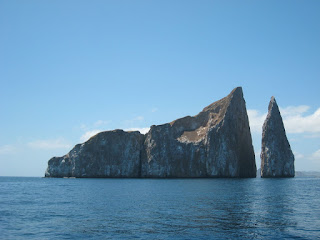Thursday, September 23, 2010
Penile hygiene-Everything you didn’t know about the hygiene practices of fishermen in Kisumu, Kenya
Kwena ZA, Bukusi EA, Gorbach P, Sharma A, Sang NM, Holmes KK. Int J STD AIDS. 2010;21:435-40.
Research on hygiene has been relatively limited in the current era of rigorous observational studies and clinical trials. Kwena and colleagues set out to investigate the perception and practices of genital hygiene among fishermen working on the beaches along Lake Victoria, targeted for a topical male microbicide hygiene intervention. They conducted 12 focus group discussions involving fishermen (n = 130), recording the discussions in Dholuo (the local language) and transcribing them verbatim before translating into English. Transcripts were double-coded and analysed using constant comparative analysis. Despite easy access to lake water and recognition of a link that may exist between poor genital hygiene and the risk of penile infection and poor sexual relationships, few fishermen regularly washed their genitalia due to fear/embarrassment from cleaning their genitalia in public, traditional Luo beliefs such as that washing with soap would reduce the fish catch, lack of time because of their busy schedules, laziness and lack of responsibility, and excessive consumption of alcohol and illicit drugs. Hygiene practices of the fishermen were poor and could contribute to genital infections including sexually transmitted infections. Given the fishermen's poor genital hygiene practices, they may benefit from hygiene intervention, including that provided by penile microbicides, which can be applied in the privacy of their bedrooms.
For abstract click here: http://www.ncbi.nlm.nih.gov/pubmed/20606226
Editors’ note: This qualitative study among primarily Luo fishermen at 32 beaches along Lake Victoria is an example of ‘formative research’. A variety of methodologies can be used in formative research to better understand the behaviours, attitudes, and practices of a population in which a trial is to be conducted. Formative research can also help discover how best to reach priority populations at the stage of programme design. The focus here is on understanding the poor hygiene practices of uncircumcised fishermen in preparation for a topical penile wipe intervention. One of the more striking beliefs that emerged in the focus groups was that the vagina cleans the penis. Another finding was that women are less likely to comment about a man’s poor hygiene if it is a transactional sexual relationship, such as when a woman receives free fish or fish at a reduced price. The idea of a penile wipe is not new – military forces with limited access to water in combat zones in both World War I and II used a penile microbicide to reduce the risk of sexually transmitted infections. Despite the fact that the water of Lake Victoria is all around, lack of privacy may be the most important reason that the penile wipe concept would be attractive to uncircumcised men.
Monday, September 20, 2010
Walk All Over Poverty
http://original.justgiving.com/andyoms
Saturday, September 18, 2010
Galapagos - Part 4
Wednesday, September 08, 2010
Fundraising Walkathon - Please Give Generously
http://original.justgiving.com/andyoms
I am participating in the CARE International UK's Walkathon in order to raise funds for the Rapid Response Fund which enables CARE to provide fast, effective relief to people in need as soon as emergencies hit. Most currently the fund is being used inwhere torrential floods have affected an estimated fourteen million people and the situation is constantly evolving. Whole villages have been washed away. Many families are now left without shelter, clean water or food, and are also facing the risk of disease. With rains forecast to continue, the situation is likely to deteriorate. Thanks to the Rapid Response Fund, CARE International was able to respond within a few days.
What is the CARE Walkathon?
The walkathon is a 25km walking challenge along the riverside in Windsor. The route comprises mostly theThamespath and the Jubilee cycle path. It can be slightly muddy (depending on the weather) in places, but it is a non-technical flat walk.
Where will my money go?
All funds will support CARE’s Rapid Response Fund (RRF). Our RRF enables us to be amongst the first to respond when an emergency occurs. For example in an emergency like the Haiti earthquake, where 222,000 people were killed, as many as 1.3 million were left homeless and many women were forced to give birth in makeshift camps, your £100 could provide 20 mothers with newborn kits containing a receiving blanket, layette gown, cloth nappies, safety pins, bars of soap and socks.
- £3 could provide a shawl for a person in an emergency.
- £10 could provide a week’s worth of heating and cooking coal for a family in an emergency.
- £25 could provide 2 families with safe water kit (water container, jerri can, bucket, bathing soap, and laundry soap) in an emergency.
- £30 could provide a family hygiene kit.
- £32 could provide 2 families with a safe water kit.
- £49 could provide a family with a kitchen set including items like plates, cups, utensils, and cooking pots in an emergency.
- £64 could provide 5 families with an emergency survival pack.
- £159 could provide 14 families with high-energy biscuits.
How can you sponsor me and donate?
Donating through Justgiving is quick, easy and totally secure. It’s also the most efficient way to sponsor me: CARE International UK gets your money faster and, if you’re a taxpayer, Justgiving makes sure 25% in Gift Aid, plus a 3% supplement, are added to your donation.
Tuesday, August 17, 2010
Galapagos - Part 3



























































